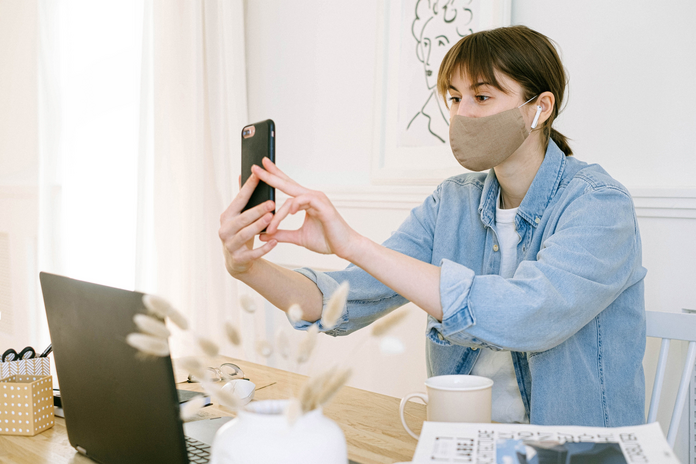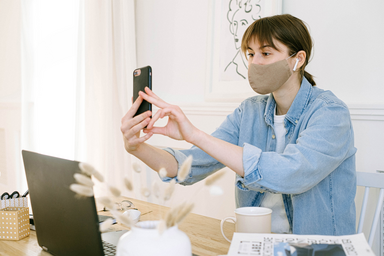One of the most noteworthy things I miss about pre-COVID life is being able to drive to a friend’s house to simply relax, destress or talk. Though late-night phone calls are indubitably still a thing, physically seeing someone can be reassuring and mentally and emotionally supportive. Even though the physical aspect is missing, here are some great ways I check in on my friends and assure them that I am there for a quick chat or full-on heart-to-heart.
Active Listening
Being an active listener is the most important aspect of being a good friend and being able to do an appropriate check-in. With COVID-19 protocols still in place, I recommend checking in over a phone call rather than in person. Being prepared to listen to any issues the person may bring up, and also being calm and respectful while sharing my own opinions about the topic or situation, is extremely important. To me, active listening doesn’t mean that I have to offer a solution to a person’s troubles but instead make sure the person feels valid in their feelings and thoughts and show that I am genuinely interested and emotionally invested in what they are saying to me. Watching Netflix or scrolling through Instagram is a big no-no as it isn’t a great way to show a person that I care and that I am engaged in what is being shared with me. In return, I find it vital to verbalize my thoughts and feelings by being honest about my own mental health and not being afraid to say that I won’t be able to offer anything but my ears during a particular conversation.
Send a Quick Message
I know it’s hard to dedicate an hour to a phone call with busy university life or work but sending a quick and simple message makes a person feel a lot better. A short “I was thinking about you,” “How’s your week been” or “Let me know when you’re free to catch up” is easy and super important. That said, if I am busy with an upcoming midterm or interview, it’s important to mention that I am not available to speak at the moment. Quickly adding a “going to have a busy couple of days but I just wanted to send my love” or “got a midterm today but we can definitely get on a call tomorrow” can be supportive, calming and encouraging for the other person. Since it is a quick message, be sure to not sound dismissive and make an effort to be there for the person.
Offer Advice
First, try not to offer unsolicited advice but also don’t dismiss a topic or situation as it can minimize the other individual’s feelings and emotions. I totally understand that it is tempting to want to make suggestions and solve a problem, but I know I am not a professional therapist so I don’t know that the solutions I provide will truly benefit the person. Don’t try to diagnose them and don’t try to make a decision for them. When I am asked for advice, the number one rule is to avoid judgement. Whatever the situation may be, this person is sharing feelings and thoughts in confidence so give advice and support in an appropriate manner. Try offering encouragement based on the situation like healthy habit ideas or coming up with a long-term plan. Be collaborative by asking questions like “how do you feel about that” or “have you considered x, y and z?” There is no right answer, so simply being a positive force for the person can helpful on its own.
Offer Resources
Sometimes it is hard to offer someone more than a supportive conversation, but outside resources are always an option. Personally, if I see that my friend or loved one is struggling with something that I don’t feel comfortable giving input on or helping to solve, simply offering a resource can make sure the other person knows that I am listening to their situation and there is someone who can provide better support than me. Make sure the person doesn’t feel ashamed of their problems or that no one cares to listen to them. Be sure to follow up after providing a resource
Thanks for reading! Hopefully these tips provide a good foundation on how to check in on friends and family and how to be more supportive.



